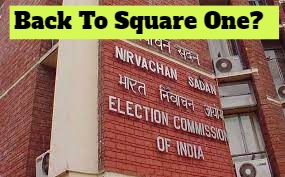

By Sunil Garodia
First publised on 2023-08-11 07:35:18
The Centre has introduced a bill in the Rajya Sabha that seeks to drop the Chief Justice of India from the panel that the Supreme Court had ordered for the selection of the chief election commissioner and other election commissioners, pending the enactment of a law on the subject. The Supreme Court panel had the Prime Minister, the CJI and the leader of the opposition as members and would have ensured that the Election Commission was not filled with officers favoured by the ruling dispensation. The government now proposes to replace the CJI with a cabinet minister to be nominated by the Prime Minister in the three-member panel, giving the government an upper hand. It also proposes that a panel comprising the Cabinet secretary and two members not below the rank of secretary to the government will search and shortlist five candidates for consideration by the PM-led panel. This is a sure recipe to to ensure a pliant Election Commission that will do the bidding of the ruling dispensation.
Before the Supreme Court verdict on the issue, as per Article 342 (2) of the Constitution, the President was empowered to appoint the CEC and ECs as suggested by the Prime Minister and the council of ministers, "subject to the provisions of any law made on that behalf by Parliament". Since there was no law on the subject, they were appointed by the President accordingly. The Supreme Court tried to make the process transparent and unbiased by forming the panel that included the CJI. The Chief Election Commissioner and Other Election Commissioners Bill seeks to overturn that verdict and ensure that the government is able to make the selection as per its wish.
The Election Commission is an important institution in a democracy. The process to select the officers that helm it needs to be transparent and neutral to ensure that elections are conducted in an impartial manner. Hence, this move on part of the government will be harmful for Indian democracy.











